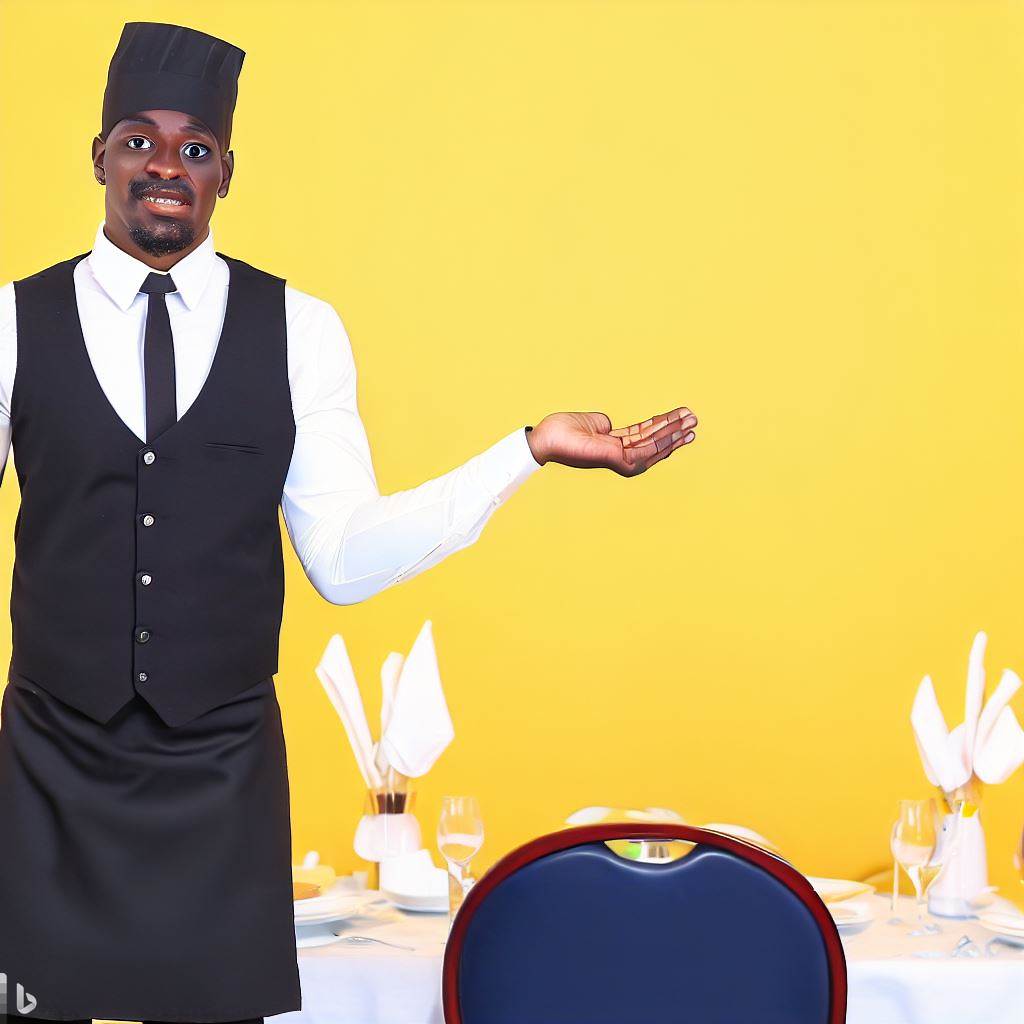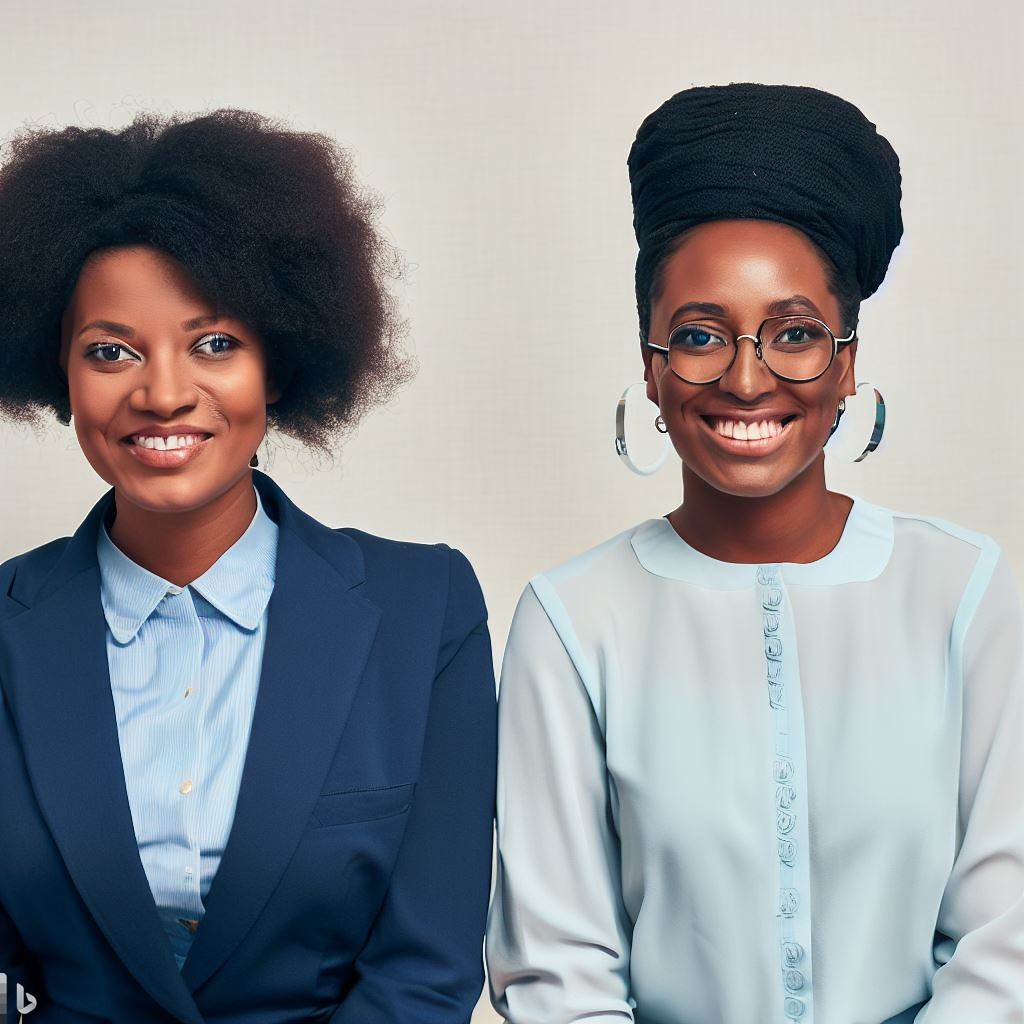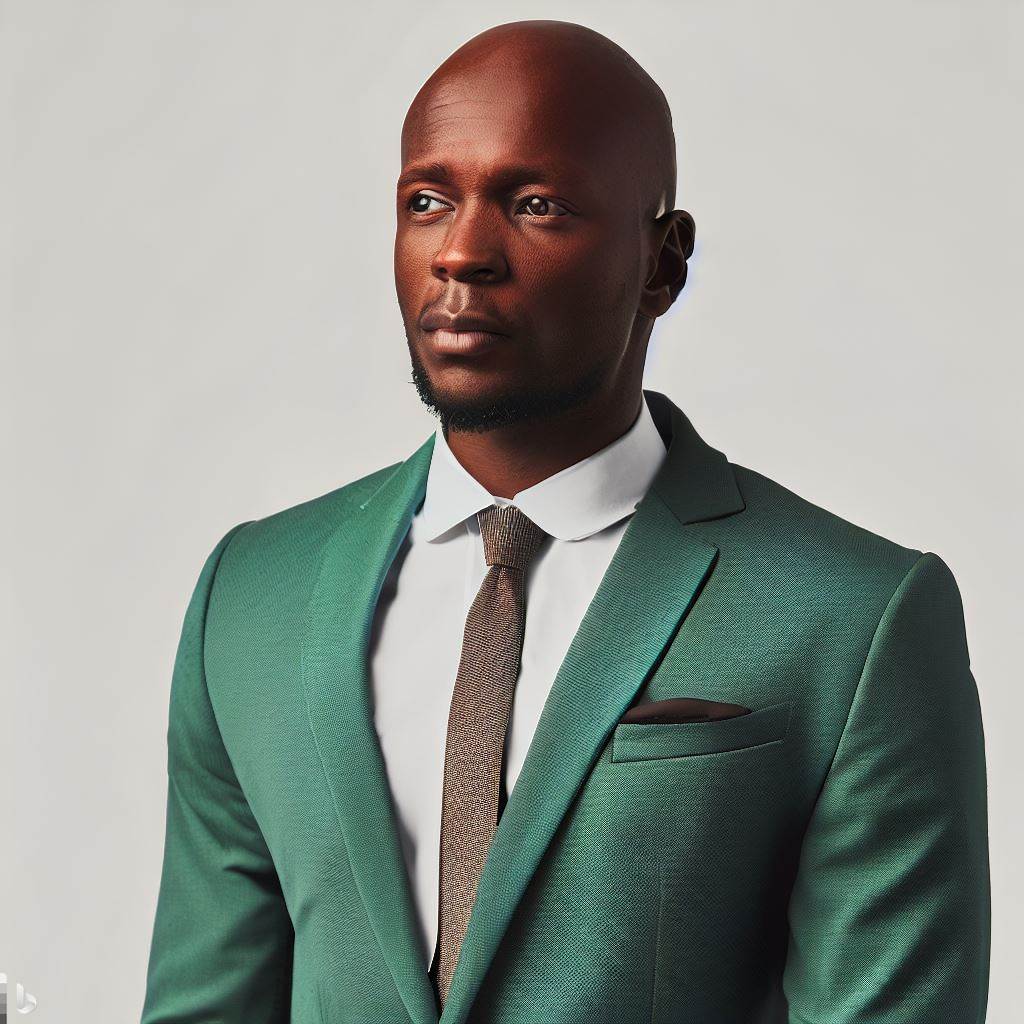Introduction
The dress code for waiters in Nigeria’s restaurants is a subject of considerable importance.
Delving into this topic not only sheds light on the cultural nuances but also underscores the professionalism embedded in the Nigerian dining experience.
In Nigeria, the attire of restaurant waitstaff serves as a reflection of the establishment’s values and the broader cultural context.
Traditional Nigerian outfits, such as well-tailored attire or uniforms, often feature prominently.
These choices not only showcase the nation’s diverse heritage but also demonstrate the pride taken in presenting a unified and aesthetically pleasing front to customers.
Furthermore, the dress code for waiters in Nigeria’s restaurants contributes significantly to the overall dining ambiance.
It plays a pivotal role in setting the tone and expectations for the diners, enhancing their sense of immersion in the rich tapestry of Nigerian culinary traditions.
In essence, exploring the dress code for waiters in Nigerian restaurants is an insightful journey into the intersection of culture and professionalism, where aesthetics meet hospitality to create memorable dining experiences.
Importance of Dress Code in the Hospitality Industry
In the hospitality industry, the dress code for waiters holds great significance and can greatly impact the overall dining experience and customer perceptions.
Additionally, it plays a key role in maintaining a professional atmosphere in restaurants.
A. Impact on Customers’ Perceptions and Dining Experience
- First impressions matter, and a waiter’s appearance can greatly influence how customers perceive the establishment.
- Well-groomed and neatly dressed waiters exude professionalism, instilling confidence and trust in the customers.
- A well-fitted uniform or attire creates a sense of consistency and reliability, making the customers feel more comfortable.
- Clean and presentable dress code ensures food safety and hygiene, assuring customers of a quality dining experience.
- By adhering to a specific dress code, waiters create a cohesive and unified brand image for the restaurant.
- Professional attire also adds to the ambiance of the restaurant, enhancing the overall dining experience for customers.
B. Role in Maintaining a Professional Atmosphere
- A standardized dress code sets clear expectations for waiters, ensuring they understand the level of professionalism required.
- Uniforms or specific dress codes provide a visual cue to customers that they are being attended to by trained and skilled staff.
- By wearing a uniform, waiters become easily identifiable, allowing customers to seek assistance when needed.
- A dress code fosters a sense of belonging and unity among the staff, creating a cohesive team atmosphere.
- Furthermore, a dress code helps minimize distractions and keeps the focus on providing excellent service to customers.
- Employees wearing appropriate attire also enhance the overall reputation and credibility of the restaurant.
In general, the dress code for waiters holds immense importance in Nigeria’s restaurant industry.
It significantly impacts customers’ perceptions and dining experience by instilling trust, consistency, and professionalism.
Additionally, it plays a crucial role in maintaining a professional atmosphere, creating a cohesive team, and enhancing the overall reputation of the restaurant.
For these reasons, adherence to a well-defined and well-implemented dress code is vital for success in the hospitality industry.
Traditional Nigerian Attire for Waiters
A. Traditional Nigerian Attire Options for Waiters
- Agbada: A flowing gown with wide sleeves and embroidery, often worn with a matching cap.
- Danshiki: A loose-fitting shirt with colorful patterns, usually paired with trousers.
- Buba and Sokoto: A flowing top and pants combination, often made from vibrant fabrics.
Traditional Nigerian attire offers a variety of options suitable for waiters, including the iconic agbada and danshiki.
These garments not only provide a sense of cultural identity but also possess the ability to enhance the dining experience.
B. Showcasing Cultural Heritage through Traditional Attire
Nigeria, a diverse nation with various ethnic groups, boasts rich cultural traditions unique to each.
Integrating traditional Nigerian attire into waiter uniforms can illuminate this diversity, offering patrons a distinctive dining experience.
When waiters adorn traditional Nigerian garments like agbada and danshiki, they become living embodiments of the nation’s cultural tapestry.
Vibrant patterns and intricate designs captivate customers, immersing them in Nigeria’s traditions.
Additionally, this attire prompts conversations, enabling waiters to share insights into Nigerian culture. Customers’ curiosity about the clothing can lead to engaging discussions, fostering a deeper appreciation for the country’s heritage.
Restaurants can leverage traditional attire as a marketing tool, attracting patrons seeking an authentic experience and setting themselves apart in a competitive market.
Beyond ambiance enhancement, this practice fosters waitstaff pride and identity as they represent their cultural roots while serving.
Moreover, it contributes to a warm and welcoming restaurant atmosphere, elevating the overall dining experience.
However, practicality is crucial; attire should facilitate efficient service without compromising professionalism.
In fact, implementing traditional Nigerian attire as part of waiter dress codes enriches the dining experience, celebrates cultural heritage, and distinguishes restaurants in a meaningful way.
Read: Career Growth in Waiting: A Guide for Nigerians
Western-Style Uniforms for Waiters
A. The popular choice of Western-style uniforms in Nigerian restaurants
- Western-style uniforms are a common sight in many Nigerian restaurants due to their popularity.
- These uniforms typically consist of crisp white shirts, black trousers, and a formal waistcoat or blazer.
- Nigerian restaurant owners often choose Western-style uniforms to align themselves with international standards.
- Popular fast-food chains and fine dining establishments in Nigeria predominantly use Western-style uniforms for their wait staff.
- Western-style uniforms give an air of sophistication and professionalism, contributing to a pleasant dining experience.
B. Benefits of Western-style uniforms, including professionalism and consistency across different establishments
- Western-style uniforms convey a sense of professionalism and elegance, enhancing the overall ambiance of the restaurant.
- Uniformity in appearance allows customers to easily recognize restaurant staff, ensuring efficient service.
- This style of uniform promotes consistency across different restaurants, creating a unified look in the industry.
- With Western-style uniforms, customers can expect a certain level of service and quality regardless of the establishment.
- Using Western-style uniforms helps Nigerian restaurants draw inspiration from successful international hospitality brands.
- Waiters dressed in Western-style uniforms are often perceived as knowledgeable and experienced in their profession.
- The use of such uniforms also helps to instill a sense of trust and reliability among customers.
- By opting for Western-style uniforms, Nigerian restaurants can attract a broader clientele, including tourists and expatriates.
- Western-style uniforms can serve as a form of branding, making a restaurant easily recognizable and memorable.
- When waiters dress in Western-style uniforms, they mirror the professionalism and standards of their international counterparts.
Western-style uniforms, featuring crisp white shirts, black trousers, and formal waistcoats or blazers, are prevalent in Nigerian restaurants, spanning fast-food chains to fine dining venues.
These uniforms offer several advantages to enhance the dining experience.
Firstly, they convey professionalism and elegance, setting a sophisticated tone that elevates the restaurant’s ambiance and reputation.
Uniformity in appearance ensures efficient service, minimizes confusion, and upholds professionalism in Nigerian restaurants.
Uniforms draw inspiration from global brands, boosting customer confidence and reputation.
Waiters in Western attire are trusted professionals, enhancing satisfaction and loyalty.
Lastly, it serves as a branding tool, making restaurants easily recognizable and boosting word-of-mouth marketing.
In short, the adoption of Western-style uniforms by Nigerian restaurants enhances the overall dining experience while promoting professionalism and unity within the industry.
Read: Chef Specialties in Nigeria: A Delicious Journey

Factors Influencing Dress Code
A. Influence of Restaurant Type
- The type of restaurant, whether casual or fine dining, greatly influences the dress code for waiters.
- Casual restaurants usually have a more relaxed dress code, allowing for comfortable and informal attire.
- Fine dining establishments, on the other hand, often require waiters to wear formal and elegant uniforms.
- The dress code in casual restaurants may include jeans, t-shirts, or polo shirts, depending on the ambiance.
- In contrast, fine dining restaurants may have specific requirements such as tailored suits, ties, and white gloves.
- The type of restaurant sets the tone for the overall customer experience, and the dress code plays a crucial role in reflecting that ambiance.
- Customers in casual restaurants expect a more laid-back environment, while fine dining patrons appreciate a higher level of sophistication.
B. Impact of Restaurant Branding and Target Audience
- Restaurant branding and target audience heavily influence the selection of the dress code for waiters.
- The brand image a restaurant wants to portray is reflected in the attire of its staff.
- High-end restaurants often opt for a more formal dress code to align with their brand’s luxurious image.
- This helps create a perception of exclusivity and elegance, appealing to a higher-paying target audience.
- On the other hand, casual dining establishments may choose a dress code that aligns with a more relaxed and friendly brand image.
- They target a wider range of customers who seek a casual dining experience, removing the need for formal attire.
- The dress code selection also considers the target audience’s preferences and expectations.
- For example, if a restaurant primarily caters to young adults or families, a more casual dress code would be appropriate.
- In contrast, if the target audience consists of professionals or business executives, a more formal dress code may be expected.
- Restaurants must consider their target audience’s demographics, preferences, and expectations to create a dress code that reflects their brand and attracts their desired customers.
To sum it up, the type of restaurant, whether casual or fine dining, plays a significant role in determining the dress code for waiters.
Casual restaurants typically have a relaxed dress code, while fine dining establishments require more formal attire.
High-end restaurants often opt for formal attire to maintain a luxurious brand image, appealing to an exclusive audience.
Casual dining establishments, on the other hand, choose attire that aligns with a relaxed and friendly brand image, appealing to a broader customer base.
By considering these factors, restaurants can establish a dress code that enhances their overall ambiance and meets the expectations of their target audience.
Read: Skills Required for Waiters: A Nigerian Perspective
Practical Considerations for Waiter’s Dress Code
A. Importance of Comfort and Flexibility
- Waiters need comfortable attire to perform their duties efficiently and without any discomfort.
- Flexible uniforms allow waiters to move freely and cater to customers’ needs promptly.
- Comfortable and flexible attire also contributes to a positive dining experience for customers.
- Choosing breathable fabrics ensures waiters remain cool and fresh during their long working hours.
- Well-fitted uniforms enhance the overall appearance of waiters and maintain a professional image.
B. Easy Maintenance and Durability
- In a fast-paced restaurant environment, uniforms must be easy to maintain.
- Stain-resistant fabrics and colors help hide spills and stains, minimizing the need for frequent washing.
- Uniforms made of durable materials withstand frequent washing and long working hours.
- Choosing high-quality uniforms ensures they withstand everyday wear and tear.
- Easy-to-repair uniforms can be quickly fixed in case of minor damages, saving time and money.
- The use of aprons or bibs as part of the uniform can provide additional protection and extend their durability.
Challenges and Addressing Issues
A. Potential challenges or issues related to enforcing dress code in Nigerian restaurants
- Inadequate financial resources to provide all staff with required uniforms.
- Resistance from staff who may find the dress code uncomfortable or inconvenient.
- Differing fashion tastes and cultural preferences among staff members.
- Difficulty in maintaining dress code standards across multiple restaurant locations.
- Outdated or non-existent policies and guidelines on dress code enforcement.
- Lack of awareness or understanding among staff regarding the importance of dress code.
B. Strategies and solutions to address these challenges
- Allocate a portion of the budget to provide uniform allowances for staff members.
- Engage staff in the decision-making process by allowing them to provide input on the dress code.
- Provide multiple options for uniforms to accommodate different fashion tastes and cultural preferences.
- Implement regular dress code audits to ensure compliance and consistency across all restaurants.
- Create and distribute clear and detailed dress code guidelines to all staff members.
- Organize training sessions to educate staff on the importance of dress code in maintaining professionalism and branding.
- Establish a dress code committee consisting of both management and staff representatives to address any dress code-related issues.
- Encourage open communication and feedback between staff and management regarding dress code concerns.
- Recognize and reward staff members who consistently adhere to the dress code standards.
- Regularly review and update the dress code policies to reflect changing fashion trends and cultural preferences.
Read: Challenges of Being a Waitress in Nigeria Explored
Delve into the Subject: Challenges and Rewards: Life as a Wind-Turbine Tech in Nigeria
Conclusion
A well-defined dress code for waiters is crucial in enhancing the overall dining experience in Nigeria’s restaurants.
It not only creates a professional and cohesive atmosphere, but also helps to convey the restaurant’s brand identity and values.
By adhering to a dress code, waiters can look presentable and approachable, establishing a positive first impression with customers.
Throughout this blog post, we discussed the various key points regarding the dress code for waiters in Nigeria’s restaurants.
We explored the need for standardized uniforms that reflect the restaurant’s theme, the importance of clean and well-maintained attire, and the role of accessories in adding a touch of style to the waiter’s appearance.
Furthermore, we highlighted the significance of dress code in maintaining hygiene standards, particularly in food-service establishments.
Proper attire, including hairnets, gloves, and aprons, shows commitment to cleanliness and keeps contaminants from reaching the food.
Additionally, we addressed the benefits of having a well-defined dress code for waiters.
It helps in creating a positive brand image and reinforces the professionalism and standards of the restaurant.
A uniformed appearance also aids in establishing a sense of consistency and reliability among the staff.
In the end, a well-designed dress code for waiters plays a vital role in enhancing the overall dining experience in Nigeria’s restaurants.
It sets the tone, promotes cleanliness and professionalism, and helps to create a positive and memorable impression on customers.
Implementing and maintaining a thoughtfully crafted dress code is an investment that can greatly contribute to the success and reputation of a restaurant.




